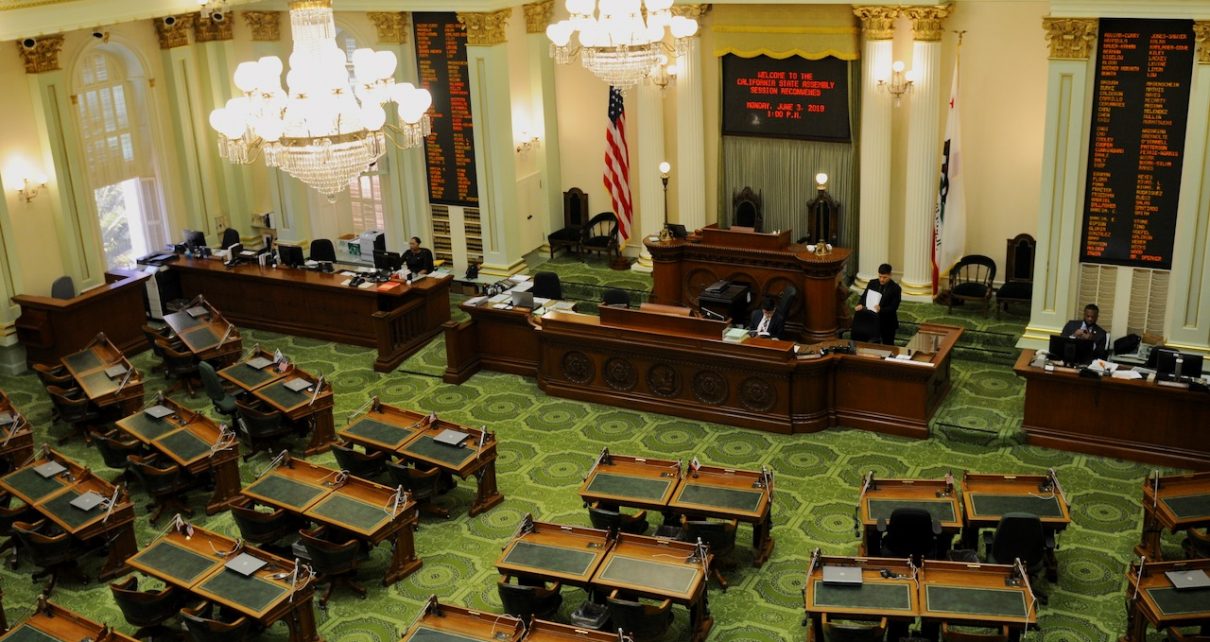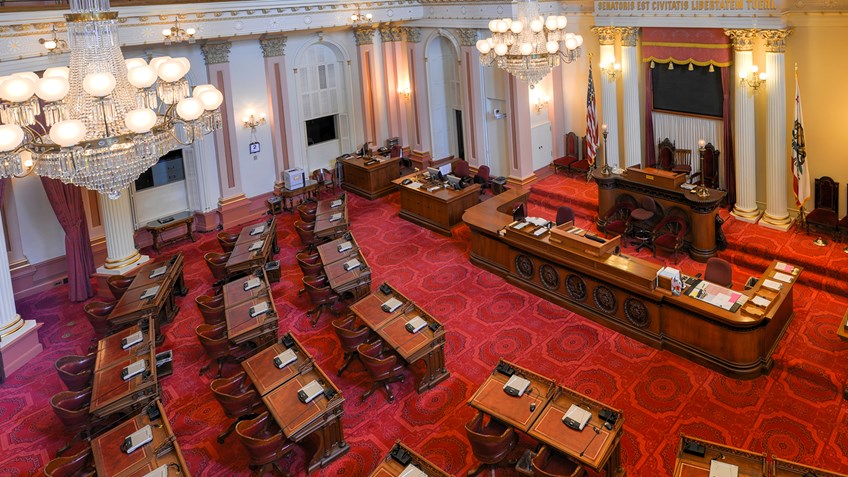
California State Assembly. (Photo: Kevin Sanders for California Globe)
How Can Prop. 24 Be Amended?
Built in to the ballot measure is language about any conflicting legislation enacted
By Chris Micheli, November 7, 2020 2:17 am
Proposition 24, which was adopted by the statewide electorate at the November 3 general election, creates the California Privacy Rights Act of 2020 (CPRA). After the enactment of the California Consumer Privacy Act of 2018 (CCPA), the Legislature has amended the CCPA statutes that are found in California’s Civil Code. With the adoption of Prop. 24, will the Legislature be able to amend the CPRA?
At the outset, the California Constitution provides the basis for whether the Legislature can amend an initiative measure that was adopted by the voters. Article II, Section 10(c), in the second sentence, provides: “The Legislature may amend or repeal an initiative statute by another statute that becomes effective only when approved by the electors unless the initiative statute permits amendment or repeal without the electors’ approval.” As a result, the general rule is that amending an initiative requires the passage of another initiative, unless the prior initiative allows amendment by the Legislature.
So, what does Prop. 24 provide? Section 25 of Prop. 24 is titled “Amendment.” In subdivision (a), Prop. 24 allows amendment to its provisions by a statute adopted by a majority vote of the Legislature and signature by the Governor. A statutory amendment adopted by the Legislature and signed into law by the Governor must be “consistent with and further the purpose and intent of this act as set forth in Section 3…”
Section 3 of Prop. 24 is extensive and deals with “purpose and Intent” of the ballot measure. Specifically, Section 3 provides that, “in enacting this act, it is the purpose and intent of the people of the State of California to further protect consumers’ rights, including the constitutional right of privacy. The implementation of this act shall be guided by the following principles:”
Thereafter, subdivision A deals with consumer rights, of which there are eight purpose and intent statements; subdivision B deals with responsibilities of businesses, of which there are seven purpose and intent statements; and, subdivision C deals with implementation of the law, of which there are eight purpose and intent statements.
Returning to subdivision (a) of Section 25, Prop. 24 specifies that any statutory amendment must be consistent with Section 3 when there is an amendment to the exemptions that are contained in Civil Code Section 1798.145. Specific to these exemptions, any amendment to an exemption must enhance privacy and be consistent with and further the purposes and intent of the CPRA. Moreover, amendments to address a decision of a state or federal court holding that a provision of the CPRA is unconstitutional or preempted by federal law must also be consistent with Section 3.
In subdivision (b), Prop. 24 provides that the Legislature may authorize additional compensation for members of the California Consumer Privacy Agency if the Legislature determines that it is necessary to carry out the agency’s functions. This must be done by enactment of a statute that is passed by a majority vote of the Legislature and signed by the Governor.
In subdivision (c), Pro. 24 specifies that its Section 25 applies to all statutes amended or reenacted as part of the CPRA, as well as all provisions of those statutes.
In subdivision (d), Prop. 24 provides that the provisions of the CPRA prevail over any conflicting legislation enacted after January 1, 2020. It then goes on to specify that any amendments to the CPRA or any legislation that conflicts with any provision of the CPRA is null and void upon passage of Prop. 24 by the voters, regardless of which California Code the language is placed. Finally, this subdivision states that legislation is considered “conflicting” for purposes of this subdivision, unless the legislation is consistent with and furthers the purpose and intent of the CPRA as set forth in Section 3.
As a result, the CPRA as enacted by Prop. 24 can be amended by the Legislature by enacting a statute, but there is a significant limitation imposed.
- Summons in California Civil Actions - July 7, 2025
- Family Conciliation Courts in California - July 6, 2025
- California Family Mediation and Conciliation Services - July 5, 2025








One thought on “How Can Prop. 24 Be Amended?”